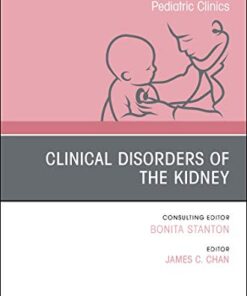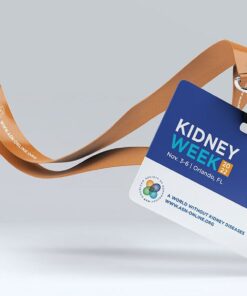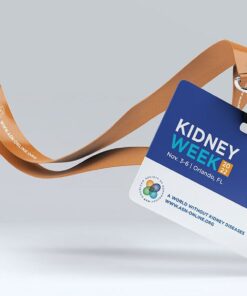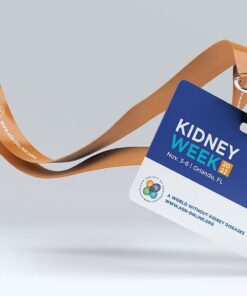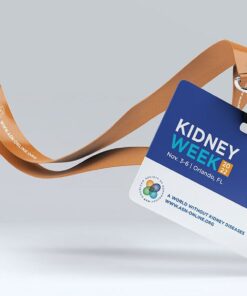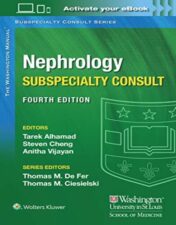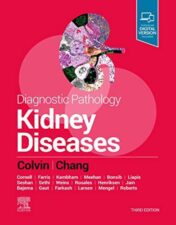Discover the Best Nephrology Books to Enhance Your Knowledge
Discover the Best Nephrology Books Now!
Are you looking for the best nephrology books to help you understand and learn more about this field? Look no further! At DentalBooks.net, we have a wide selection of nephrology books that are perfect for medical professionals, students, and anyone else interested in learning more about this fascinating field. Our selection includes textbooks, reference guides, and other resources that will help you gain a better understanding of nephrology. Whether you’re just starting out or already have some experience in the field, our nephrology books can help you take your knowledge to the next level. So don’t wait any longer – discover the best nephrology books now at DentalBooks.net!
NEPHROLOGY BOOKS
Interstitial Hyperthermia: Physics, Biology and Clinical Aspects (Original PDF from Publisher)
NEPHROLOGY BOOKS
NEPHROLOGY BOOKS
Robotic Surgery for Renal Cancer (Original PDF from Publisher)
NEPHROLOGY BOOKS
NEPHROLOGY BOOKS
NEPHROLOGY BOOKS
NEPHROLOGY BOOKS
NEPHROLOGY BOOKS
Handbook of Nephrology and Hypertension, 7th Edition (EPUB3)
NEPHROLOGY BOOKS
Pediatric Nephrology, 8th Edition (Original PDF from Publisher)
NEPHROLOGY BOOKS
NEPHROLOGY BOOKS
ASN Glomerular Diseases – 2022 Update (On-Demand and Livestream)
NEPHROLOGY BOOKS
NEPHROLOGY BOOKS
Internal Medicine Videos
NEPHROLOGY BOOKS
Diagnostic Pathology: Kidney Diseases, 3rd Edition 2019 Original PDF
NEPHROLOGY BOOKS
NEPHROLOGY BOOKS
NEPHROLOGY BOOKS
Fisiopatología renal: Fundamentos, Fifth edition (Spanish Edition) 2019 High Quality Image PDF
NEPHROLOGY BOOKS
NEPHROLOGY BOOKS
NEPHROLOGY BOOKS
NEPHROLOGY BOOKS
Minimally Invasive Percutaneous Nephrolithotomy 2022 Original PDF
NEPHROLOGY BOOKS
National Kidney Foundation Primer on Kidney Diseases, 8th Edition 2022 Original PDF
Introduction
Are you looking to enhance your knowledge of nephrology? Look no further! Discover the Best Nephrology Books to Enhance Your Knowledge is here to help. This guide provides an overview of the best books on nephrology, from textbooks to reference guides and more. With this guide, you can find the perfect book to help you understand the complexities of nephrology and stay up-to-date with the latest developments in the field. Whether you're a student, a medical professional, or just someone interested in learning more about nephrology, this guide has something for everyone. Get ready to expand your knowledge and become an expert in nephrology!
Overview of the Latest Nephrology Research
Nephrology is a branch of medicine that focuses on the diagnosis and treatment of diseases related to the kidneys. It is an ever-evolving field, with new research being conducted every day to improve the quality of care for patients with kidney-related conditions. The latest nephrology research is focused on developing better treatments and therapies for kidney diseases, as well as improving the understanding of how these diseases develop and progress.
One area of research that has seen significant advances in recent years is the use of stem cells to treat kidney diseases. Stem cell therapy has been used to treat a variety of conditions, including kidney failure, and researchers are now exploring ways to use this technology to regenerate damaged or diseased tissue in the kidneys. This could potentially lead to improved treatments for chronic kidney disease and other conditions.
Another area of research that is gaining traction is the use of artificial intelligence (AI) to diagnose and treat kidney diseases. AI can be used to analyze large amounts of data quickly and accurately, which can help doctors make more informed decisions about patient care. AI can also be used to identify patterns in patient data that may indicate the presence of a particular condition, allowing for earlier diagnosis and treatment.
In addition to these two areas, researchers are also looking into ways to improve the accuracy of imaging techniques used to diagnose kidney diseases. For example, MRI scans are often used to detect abnormalities in the kidneys, but they can be difficult to interpret due to their complexity. Researchers are working on ways to make MRI scans easier to read and interpret, which could lead to more accurate diagnoses and better outcomes for patients.
Finally, researchers are also exploring ways to improve the effectiveness of dialysis treatments. Dialysis is a common treatment for kidney failure, but it can be uncomfortable and time-consuming for patients. Researchers are looking into ways to make dialysis treatments more efficient and comfortable, such as using smaller needles and more advanced machines.
The latest nephrology research is helping to improve the lives of those living with kidney diseases. By continuing to explore new treatments and technologies, researchers are making strides towards finding better ways to diagnose and treat these conditions.
Understanding the Basics of Kidney Disease
Kidney disease is a serious medical condition that affects millions of people around the world. It can be caused by a variety of factors, including genetics, lifestyle choices, and environmental factors. Understanding the basics of kidney disease is essential for anyone who may be at risk or has been diagnosed with the condition.
The kidneys are two bean-shaped organs located in the lower back. They are responsible for filtering waste products from the blood and excreting them in the form of urine. When the kidneys become damaged, they are unable to properly filter out toxins and waste products, leading to a buildup of these substances in the body. This can cause a range of symptoms, including fatigue, swelling, high blood pressure, and anemia.
There are several different types of kidney disease, each with its own set of causes and symptoms. The most common type is chronic kidney disease (CKD), which is caused by long-term damage to the kidneys. Other types include acute kidney injury (AKI), which is caused by sudden damage to the kidneys, and end-stage renal disease (ESRD), which is the most severe form of kidney disease.
Risk factors for developing kidney disease include age, diabetes, high blood pressure, family history, and certain medications. People who have any of these risk factors should talk to their doctor about getting tested for kidney disease. Early detection and treatment can help slow the progression of the disease and prevent further damage to the kidneys.
Treatment for kidney disease depends on the type and severity of the condition. In some cases, lifestyle changes such as diet and exercise can help improve kidney function. Medications may also be prescribed to help control symptoms and reduce the risk of complications. In more advanced cases, dialysis or a kidney transplant may be necessary.
Understanding the basics of kidney disease is important for anyone who may be at risk or has been diagnosed with the condition. Knowing the signs and symptoms, risk factors, and treatments can help people take steps to protect their kidneys and maintain their health.
Diagnosis and Treatment of Renal Disorders
Renal disorders are a group of conditions that affect the kidneys, which are two bean-shaped organs located in the lower back. The kidneys filter waste and excess fluid from the blood, regulate electrolyte balance, and produce hormones that help control blood pressure. When the kidneys become damaged or diseased, they can no longer perform these functions properly, leading to a variety of symptoms and complications.
Diagnosis of renal disorders typically begins with a physical exam and review of medical history. During the physical exam, the doctor will check for signs of kidney disease, such as swelling in the legs, feet, or face, high blood pressure, and an enlarged abdomen. The doctor may also order laboratory tests to measure levels of creatinine, urea, and other substances in the blood and urine. Imaging tests, such as ultrasound, CT scan, or MRI, may also be used to assess the size and shape of the kidneys and detect any abnormalities.
Once a diagnosis is made, treatment will depend on the type and severity of the renal disorder. In some cases, lifestyle changes, such as reducing salt intake and increasing physical activity, may be enough to improve kidney function. Medications may also be prescribed to reduce inflammation, control blood pressure, and protect the kidneys from further damage. In more severe cases, dialysis or a kidney transplant may be necessary.
Dialysis is a procedure that uses a machine to filter waste and excess fluid from the blood when the kidneys are unable to do so. It is usually done several times a week and can help improve quality of life for those with end-stage renal disease. A kidney transplant is another option for those with end-stage renal disease. This involves surgically removing a healthy kidney from a donor and implanting it into the patient.
No matter what type of renal disorder is present, it is important to follow the doctor’s instructions and take all medications as prescribed. Regular checkups and lab tests are also important to monitor kidney function and ensure that the condition is being managed effectively.
The Role of Dialysis in Managing Kidney Disease
Dialysis is a medical procedure used to manage kidney disease. It is a process that filters and purifies the blood when the kidneys are no longer able to do so. Dialysis helps to remove waste, salt, and extra water from the body, which helps to keep the body in balance.
When the kidneys become damaged or diseased, they can no longer filter out toxins and waste products from the blood. This can lead to a buildup of toxins in the body, which can cause serious health problems. Dialysis helps to remove these toxins from the body, allowing the patient to maintain their health.
There are two main types of dialysis: hemodialysis and peritoneal dialysis. Hemodialysis is a process where a machine is used to filter the blood outside of the body. The patient’s blood is pumped through a special filter and then returned to the body. Peritoneal dialysis is a process where a special fluid is put into the abdomen and then drained out. This fluid helps to filter out toxins from the body.
Dialysis is an important part of managing kidney disease. It helps to keep the body in balance by removing toxins and waste products from the blood. It also helps to reduce symptoms associated with kidney disease, such as fatigue, swelling, and high blood pressure. Dialysis can help to prolong life and improve quality of life for those with kidney disease.
It is important to note that dialysis is not a cure for kidney disease. It is only a way to manage the symptoms and slow down the progression of the disease. Patients should still follow their doctor’s advice and take medications as prescribed. They should also make lifestyle changes to help manage their condition, such as eating a healthy diet and exercising regularly.
Dialysis is an important part of managing kidney disease. It helps to keep the body in balance by removing toxins and waste products from the blood. It can also help to reduce symptoms associated with kidney disease and prolong life. However, it is important to remember that dialysis is not a cure for kidney disease and patients should still follow their doctor’s advice and make lifestyle changes to help manage their condition.
Advances in Transplantation for Kidney Failure
Advances in transplantation for kidney failure have revolutionized the treatment of this life-threatening condition. Kidney transplantation is now the preferred treatment option for many patients with end-stage renal disease (ESRD). It offers a better quality of life and improved survival rates compared to dialysis, which is the traditional treatment for ESRD.
The first successful kidney transplant was performed in 1954, and since then, the field has seen tremendous advances. Transplantation techniques have become more sophisticated, allowing for better outcomes and fewer complications. In addition, immunosuppressive drugs have been developed that help prevent organ rejection. These drugs are essential for successful transplantation and have greatly improved the success rate of transplants.
Organ donation has also increased significantly over the years, making it easier for patients to find a suitable donor. Living donors can provide a kidney from a family member or friend, while deceased donors can provide organs from those who have passed away. This has made it possible for more people to receive a transplant and improve their quality of life.
In recent years, there have been further advances in transplantation for kidney failure. Minimally invasive techniques such as laparoscopic nephrectomy have been developed, which allow for faster recovery times and fewer complications. In addition, robotic surgery has been used to perform complex kidney transplants with greater precision and accuracy.
Finally, stem cell research has opened up new possibilities for treating kidney failure. Stem cells can be used to create new kidneys, which could potentially eliminate the need for transplantation altogether. While this technology is still in its early stages, it holds great promise for the future of kidney transplantation.
Overall, advances in transplantation for kidney failure have revolutionized the treatment of this life-threatening condition. With improved techniques, immunosuppressive drugs, and increased organ donation, more people than ever before are able to receive a transplant and improve their quality of life. In addition, stem cell research holds great promise for the future of kidney transplantation.
Conclusion
In conclusion, the best nephrology books can help you enhance your knowledge and understanding of this important field. Whether you are a medical student, a practicing physician, or just someone interested in learning more about nephrology, these books can provide you with valuable insight into the subject. With their comprehensive coverage of topics such as kidney anatomy, physiology, pathology, and treatment, these books can help you gain a better understanding of the complexities of nephrology. So, if you’re looking to expand your knowledge of nephrology, be sure to check out some of the best nephrology books available today.










